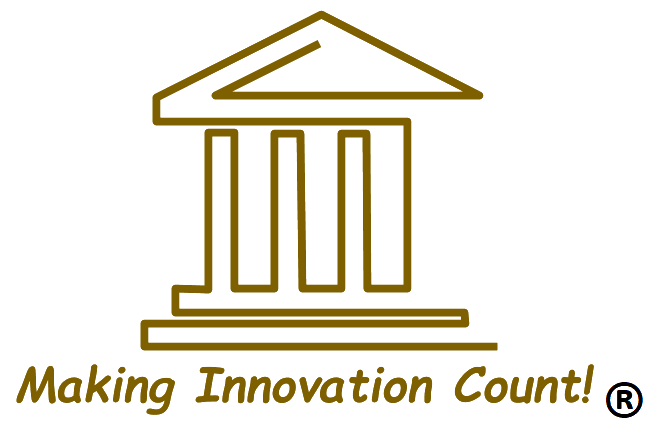|
Question: If a former colleague is refusing to send me back a hard drive containing valuable information, is there any legal pressure I can apply to get it back?
Facts: I am a freelance video producer. I mailed my client's hard drive containing proprietary video content to another video producer hired by the same client. Said video producer was let go, for reasons unknown to me, and they gave me the job. Since then the other producer has refused to send me back the drive, keeps saying he will but never does. This has put me in a tight spot and threatens my reputation with the client. I just want the hard drive back with the footage. The value of the hard drive is $200, the value of the footage is at least $1500, my reputation is priceless. Answer: It is unusual to have enough facts so that I can present to you an “open and shut” case so in my analysis I have included legal definitions so that you can better understand the legal issues involved. As a result my answer will be long. From the facts you have presented it seems as if the Other Video Producer (OVP) may be liable for the tort of “Conversion”. A tort is a wrongful act, not including a breach of contract, that results in injury to another's person, property, reputation, or the like, and for which the injured party is entitled to compensation. The tort (wrongful act) that OVP may be liable for here is the tort of “conversion”. Conversion is the intentional exercise of wrongful dominion and control over the property of another without consent or privilege. Conversion Here we have the property of another because the hard drive does not belong to the OVP but to your client. Moreover it is without consent because you have asked for it back. Although OVP may argue that you gave him consent to have the drive because you mailed it to him the counter is that OVP has exceeded the consent you gave him as you have asked for it back. As for privilege OVP may have the necessary privilege to keep the drive if your client wants him to have it or if it was his drive but from the facts it seems that OVP has no privilege to keep the drive. In addition OVP has dominion and control over the drive because it is in his possession and he is refusing to release it from his possession. His dominion and control is wrongful because the drive belongs to the client and as discussed above he has no consent or privilege to keep it. Finally his act is intentional because he says that he will return it but refuses to perform the acts necessary to return it. In summary you can see that from the facts you presented it seems that OVP may be liable for the tort of conversion. If so what can be your remedy? Remedy In a tort action the remedy is to put the plaintiff, you, in the position they would have been in had the tort never occurred. Since the content of the drive is unique your best remedy is what we call a “mandatory injuction” which is an order from the court commanding someone to do something. If they refuse the order from the court we call this “Contempt of Court” and the court may fine them or even send them to jail. However for the court to issue a mandatory injuction you will have to prove the following: 1. That the defendant did commit a tort. Here OVP may be liable for the tort of conversion thus satisfying this requirement. 2. That the “legal remedy” is not adequate. “Legal Remedy” means that the plaintiff will be restored to the position they were in prior to the defendant’s tort if the defendant paid them money. So say someone hit your car. Assuming that your car is not a one-of-a-kind car the defendant could just pay for the repairs. Although OVP could argue that the hard drive is replaceable and that he could pay you $200 to do so your argument will be that the information on the drive makes the drive a “one-of-a-kind” and that money alone will not replace what is on the drive. So the “legal remedy” of just having OVP pay you money will not restore you to the position you were in before the tort. You need the drive itself. 3. That the court order be easily enforceable. The courts do not like giving orders that are difficult to enforce or that would amount to slavery. For example the court would not order you to complete a video production for your client because how could the know if you would have put in your best effort? Also requiring you to work for someone else would smack of slavery. However here the mandatory injunction is easily enforceable as all that is required is to order OVP to return the drive back to you. 4. That without the court order you will suffer irreparable harm. Here you will have to prove to the court that without the drive you will suffer irreparable harm. The loss of your reputation is irreparable as it is difficult to acquire and so easily lost. 5. That in balancing the hardships between you and OVP that you will suffer the greater harm. Before the court will issue an order they will balance the hardships. For example say that a landfill is upwind from you and that on days you could smell that landfill. If you asked the court for an order to stop that landfill from operating they would balance the hardship on the community to move the landfill or on you to live with the smell. The court would likely find that the community would suffer more than you and would not issue such an order. However here OVP will not suffer any hardship at all since the drive is not even his and you would suffer greatly as you have original work on the drive. Thus the balancing of the hardships would fall in your favor. So in summary it seems that you could ask the court for a mandatory injuction ordering OVP to return the drive to you. By the way, the technical term for this remedy is called “Detinue” but the judge would understand mandatory injunction as well. However OVP could raise defenses to your charge. Let me talk about a couple of them. Defenses Latches Laches is an unreasonable delay during which time the defendant's situation has changed to the extent that an additional and unnecessary detriment would result if the mandatory injuction were allowed. Here I do not believe that OVP could raise the defense of Laches because he will suffer no harm if he were to lose possession of the drive. Unclean Hands The "unclean hands" defense is usually confined to the plaintiff's inequitable (unethical, immoral) conduct directly related to the subject of the litigation. Here if OVP could prove to the court that you acted unethically, say you told your client lies about OVP, the court may refuse to issue the mandatory injunction. However from the facts you stated it seems that you acted ethically. I do not believe that OVP could assert this defense. Summary Therefore it does not seem that OVP could raise any defenses and that you could ask the court to issue a mandatory injunction ordering OVP to surrender the drive to you.
0 Comments
|
Categories
All
|
California, Inland Empire - (909) 566-2801
California, Santa Barbara - (805) 500-6241
Tennessee - (423) 226-8036
Georgia - (404) 436-0899
California, Santa Barbara - (805) 500-6241
Tennessee - (423) 226-8036
Georgia - (404) 436-0899

